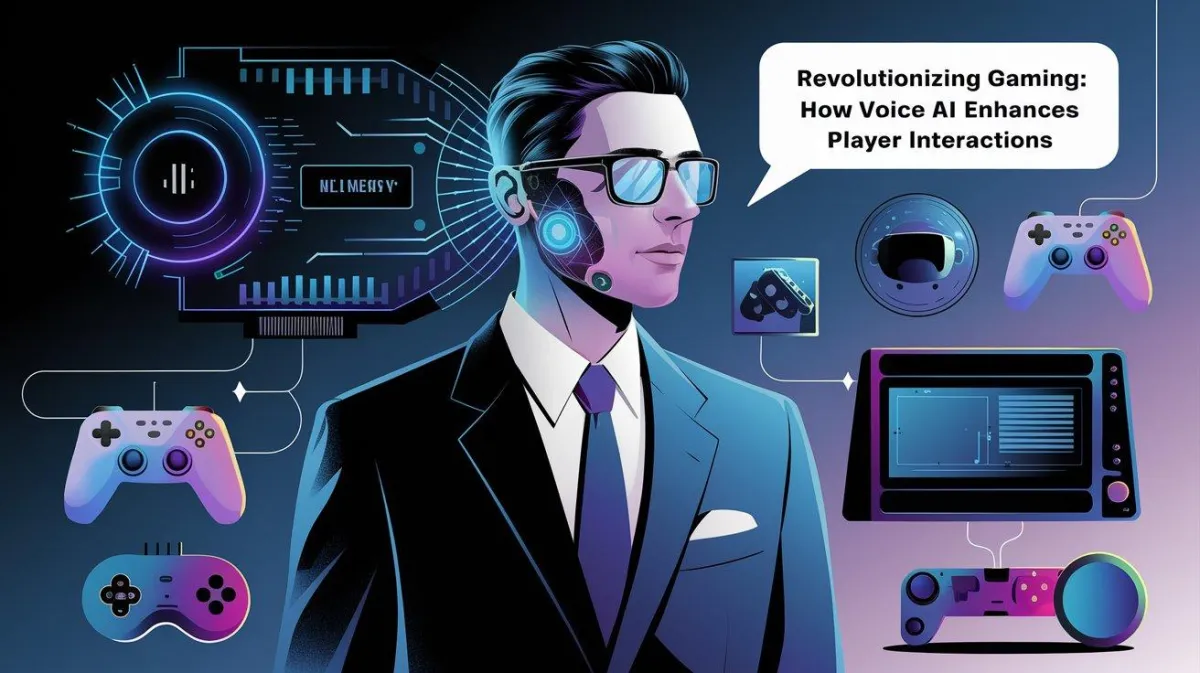
Revolutionizing Gaming: How Voice AI Enhances Player Interactions
Revolutionizing Gaming: How Voice AI Enhances Player Interactions
The gaming industry is constantly evolving, with developers leveraging the latest technologies to enhance player experiences. One such advancement is voice AI, which has the potential to transform the way players interact with games, teammates, and virtual environments. By integrating voice AI, gaming companies can create immersive experiences that feel more intuitive, engaging, and dynamic.
How Voice AI Enhances Player Experiences
Real-Time Game Assistance
Voice AI can act as a virtual guide, offering players hints or tips when they’re stuck. Whether it’s solving a puzzle, locating an objective, or understanding a game mechanic, a voice assistant can provide contextual help without breaking the flow of the game.
Example: In open-world RPGs, voice AI can suggest nearby quests or provide lore details about the player’s current location.
Enhanced Multiplayer Communication
Managing communication in multiplayer games is critical for teamwork and strategy. Voice AI can transcribe spoken commands, translate languages in real time, or even filter inappropriate language to maintain a positive gaming environment.
Example: In fast-paced shooters, voice AI can convert a teammate’s command into text for players who prefer reading over listening.
Dynamic NPC Interactions
Traditional non-playable characters (NPCs) follow scripted responses, but voice AI enables more dynamic and personalized conversations. Players can ask open-ended questions, receive unique responses, and even influence storylines based on how they interact with NPCs.
Example: In a mystery game, players could interrogate suspects using natural language, uncovering clues based on their dialogue choices.
Adaptive Gameplay
Voice AI can monitor a player’s tone and words during gameplay to adjust difficulty levels or offer encouragement. This creates a personalized gaming experience tailored to the player’s emotional state.
Example: If a player expresses frustration, the AI could suggest strategies or simplify a challenging section temporarily.

Benefits for Gaming Companies
Improved Player Retention
Enhanced voice-driven interactions can keep players engaged for longer, reducing churn rates and increasing overall satisfaction.
Cross-Cultural Accessibility
Voice AI can translate in-game dialogues and instructions, making games accessible to a global audience without requiring extensive localization efforts.
Increased Monetization Opportunities
Voice AI can recommend in-game purchases, such as upgrades or cosmetic items, based on a player’s preferences and gameplay style.
Reduced Support Costs
Games with built-in voice AI assistance can reduce the need for external customer support by helping players troubleshoot issues in real time.
Real-World Applications of Voice AI in Gaming
Story-Driven Games: Create deeper immersion by allowing players to converse naturally with NPCs, influencing game outcomes.
Esports: Enhance team coordination through voice-to-text transcription and multilingual communication tools.
VR and AR: Enable hands-free control and interaction, making virtual environments feel more lifelike.
The Future of Voice AI in Gaming
As voice AI technology continues to improve, its role in gaming will expand. From personalized storylines to entirely voice-driven gameplay, the possibilities are vast. Gaming companies that embrace voice AI will not only stay ahead of the curve but also provide unforgettable experiences that keep players coming back for more.
Voice AI is no longer a futuristic concept—it’s a tool that’s already shaping the gaming industry. By integrating it into their games, developers can revolutionize player interactions, creating memorable and engaging experiences that redefine what’s possible in gaming.
Would you like to see how voice AI could elevate your gaming project? Let’s start the conversation.
STAY UPDATED
Sign up to be the first to find out when we add new languages, new bots, new capablities, and more. We respect your privacy and will never share your information with any third-party vendors.
Sign up to be the first to find
out when we add new
languages, new bots, new
capablities, and more. We
respect your privacy and will
never share your information
with any third-party vendors.




